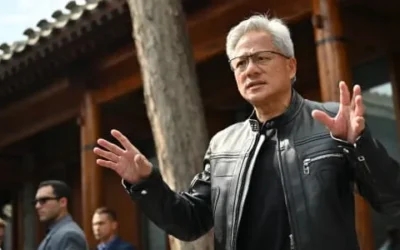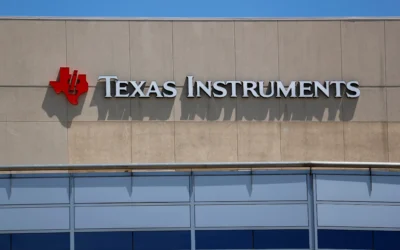Metallica’s Influence: David Ellefson’s Painful Memories From the Megadeth Experience
In a recent interview, former Megadeth bassist David Ellefson opened up about the grueling and tumultuous making of Megadeth’s latest album, shedding light on the creative disparities and personal conflicts that tainted the experience. While Ellefson remains grateful for his musical journey, he did not hold back from describing the album process as ‘spiteful, vengeful, and hateful.’
David Ellefson Speaks Out
Ellefson, who has a history with thrash metal legends Megadeth, revealed he was glad to have distanced himself from the ‘terrible’ experience of making the album. The creative process, in his view, lacked the collaborative spirit and mutual respect that should define the making of music. Instead, he described it as filled with frustration, particularly due to Dave Mustaine’s authoritative approach.
In his characteristically candid style, Ellefson stated, ‘The process of making this album was really marred by negative emotions. It was almost like an exercise in hate rather than a gathering of creativity.’ Indeed, it’s a sentiment that resonates with many musicians who find themselves trapped in a toxic working environment.
The Creative Tug-of-War
Ellefson’s reflections point toward a larger conversation surrounding the dynamics between band members. Mustaine, known for his brilliance as a songwriter and passionate songwriting approach, sometimes creates discord within the group. The creative tug-of-war appears to create an atmosphere in which ideas are less freely exchanged and more vividly contested.
During the course of the interview, Ellefson recounted a particularly telling moment when Mustaine expressed a desire to revisit and re-record a demo from the early days of Metallica, a band that Mustaine famously co-founded before being let go. Ellefson took a stand during that discussion, firmly stating, ‘I couldn’t kiss the ring for that one.’ His refusal highlights a significant breaking point in his relationship with Mustaine and perhaps even encapsulates the greater issues at play within Megadeth.
The Ghosts of Metallica
Metallica loomed large over both Ellefson and Mustaine. Their intertwined stories, steeped in competition and rivalry, shape not only the narratives of both bands but the heavy metal genre as a whole. The history stretches back over three decades, during a time when a fierce competition catalyzed creativity but also ignited animosity. This complicated history spills into every album cycle, perpetual tension rooted in the past.
Ellefson’s comment about re-recording the Metallica demo brought up the shadows of the lost past. He reiterated that he respected Mustaine as an artist but could not bear the idea of dwelling on something that was not theirs anymore. It echoed frustrations from the past – how the split from Metallica and subsequent rivalry could perpetuate itself over time. By mentioning the demo, Mustaine seemed to be grasping at something that had long since evolved beyond their initial collaboration.
Looking Back: The Formation of Megadeth
Founded in 1983 after the culmination of Mustaine’s exit from Metallica, Megadeth emerged as one of the ‘Big Four’ of thrash metal, alongside Anthrax, Slayer, and of course, Metallica. Ellefson, who joined Mustaine on this journey, bore witness to the animosity and passion that fueled their initial works. Tracks like ‘Peace Sells… But Who’s Buying?’ and ‘Rust in Peace’ epitomized the kinetic energy and raw emotion that have become synonymous with thrash music.
As time progressed, however, the bond between Ellefson and Mustaine began to fray. The disagreements over musical direction, personal beliefs, and creative ownership began to surface. This unraveling is not simply the story of two egos but also a reflection of the challenges that often accompany long-standing partnerships.
The Essence of Collaboration
The essence of a successful band often comes down to collaboration and a shared vision. When that vision has realistic tensions intertwined in personal rivalries, success can become elusive. While the ‘Big Four’ constantly inspired one another in the 1980s and 1990s, the evolution of both Metallica and Megadeth sees a stark contrast in approaches that leads to different creative outputs.
Ellefson’s conflict with Mustaine regarding autonomy also points toward a dialogue within music about power dynamics and the creative process. When artists become leaders of a project, balancing authority with collective input can become particularly tricky, especially when past grievances refuse to fade.
The Future of Megadeth
As Megadeth goes forward, the questions surrounding its future, both musically and interpersonally, loom large. Ellefson’s departure from the band, following allegations of misconduct that he has since denied, opened a new chapter. With renewed discussions surrounding creativity and collaboration, the challenge remains for the group to foster an environment that encourages mutual respect.
The tensions described by Ellefson may still linger within the fabric of Megadeth, but hope still resides—a hope that through understanding and revisiting collective goals, the destructive patterns of the past might be dissipated in favor of more harmonious creations.
Conclusion: Learning from the Past
At the intersection of musical brilliance and interpersonal dynamics lies an ongoing battle. The painful process that David Ellefson described can serve as an example not only for aspiring musicians but also for artists in collaborative fields looking to find a balance between individuality and collaboration. Art should be a reflection of the best of its contributors, but only when egos and past grievances are set aside.
As Ellefson endeavors to carve out his path away from Megadeth, it is clear that his memories of the band—both positive and negative—will fuel his future endeavors, potentially steering younger talents away from the hallmarks of bitterness and towards inclusive creativity. The heavy metal world has seen enough examples of creative ruin; it is time for a revolution in how these artists communicate and create. Only time will tell how Megadeth evolves from this point and whether the echoes of its contentious history will be transformed into a more empowered legacy.







